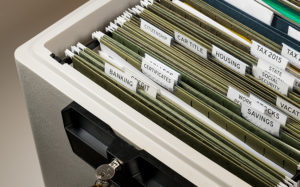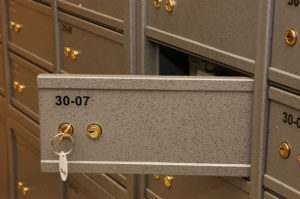What Happens to Savings Bonds When the Owner Dies?

Because savings bonds often take many years to mature, they may be stashed in a safety deposit box or filing cabinet and forgotten. The Department of the Treasury has provided instructions about what should be done if the owner of a savings bond has died.
Electronic savings bonds. If the savings bonds are electronic, the person who died likely has a TreasuryDirect account. If so, you should contact the Treasury Department’s Bureau of Fiscal Service, which will put a hold on the account and provide instructions for your specific situation.
Paper savings bonds. For paper savings bonds, you must first determine who owns the bond. A savings bond typically prints the names of the owner or owners on the bond. If all owners named on the bond have passed away, the bond is part of the estate of the person who died last. In order to properly handle the savings bond, you must establish that you are entitled to the bond or that you have the authority to act on behalf of the beneficiary of the bond, for example, you are the executor or administrator of the owner’s estate.
If the savings bond is part of the owner’s estate, the Treasury Department has spelled out several procedures:
- If the bonds are valued at $100,000 or less and the estate was not formally administered through a court process, the beneficiary simply must mail in the bond, an FS Form 5336 that has been signed and notarized, and proof of the owner’s death to the Bureau of Public Debt.
- If the value of the bonds exceed $100,000 or the estate is being administered by a court, the personal representative (meaning the executor or administrator) of the estate can redeem the bonds by mailing evidence showing his or her appointment as personal representative, a certified copy of the owner’s death certificate, and FS Form 1455, and the bond.
- In a situation in which the bond is a found long after the owner has died and the owner’s estate has already been administered by a court, the beneficiary must send the bond, proof of death, a notarized affidavit explaining that the bonds belong to named individuals (for small estates) or a final accounting from the estate (for any other estate) to the Bureau of Public Debt. If there is more than one person who may be entitled to inherit the bond, an FS Form 5394 must be mailed in by the heirs, who must all agree with the distribution of the bonds.
If a survivor is named on the savings bond, it does not become part of the deceased person’s estate. Rather, the savings bond belongs to the survivor, who can choose to do nothing, redeem the bond, or have it reissued. If the survivor does nothing, the bond will continue to earn interest until the bond matures. The survivor could also cash a paper bond by going to a financial institution that pays savings bonds and provide the identification and other documentation required by that institution (however, only the Treasury Department can cash HH Series bonds). Alternatively, the survivor can have the bond reissued in his or her name alone. Series EE and I savings bonds are only reissued in electronic form, but Series HH bonds are still reissued in paper form.
Now may be a good time to check to see if you own any savings bonds and if the savings bonds are titled in such a way that they pass to your beneficiaries without the need for probate. An estate planning attorney can advise you on the best way to title your savings bonds so that they are coordinated with your overall estate plan.
For other things to consider when reviewing your estate plan, see https://galligan-law.com/twelve-reasons-to-update-your-estate-plan/.

